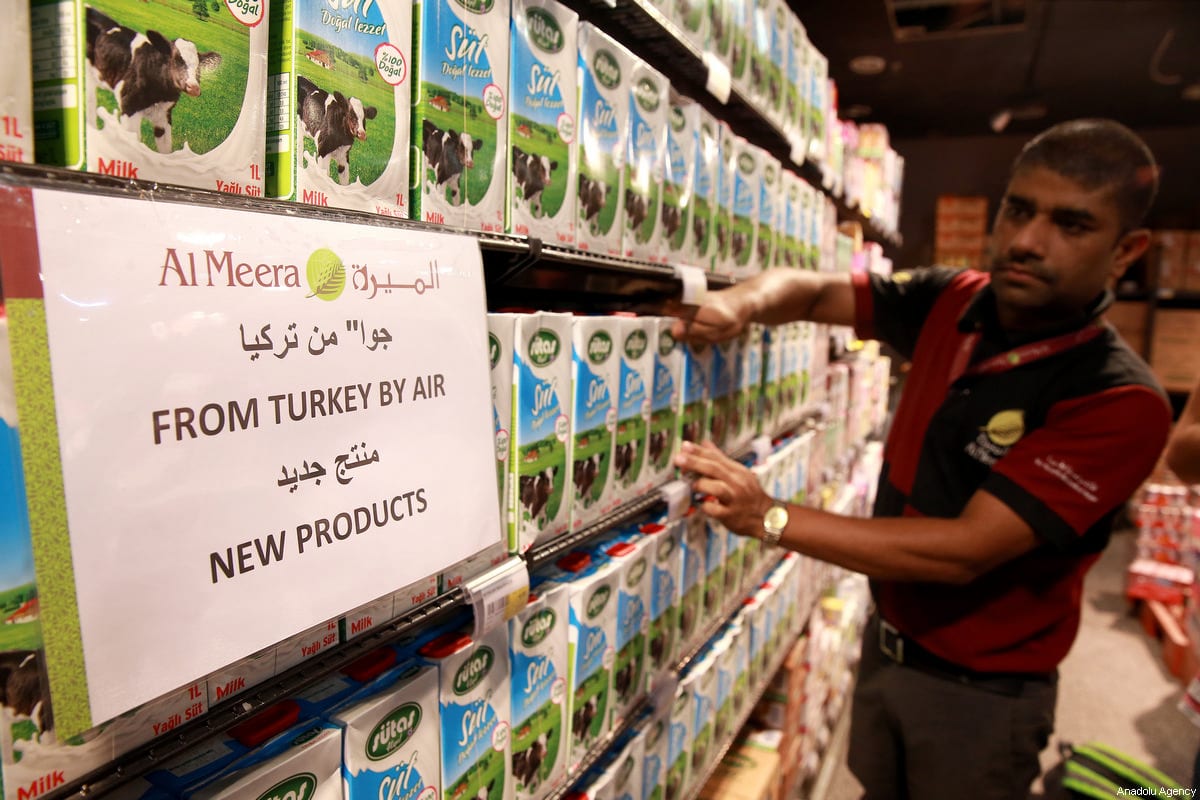Yazar: Abdullah Alkatheri - 13.10.2023 The Saudi-Türkiye relations witnessed much turmoil in recent years due to the opposing foreign policy approach and clash of interests, but a rekindling is now appears to be in the making. President Erdogan visited Saudi Arabia over the summer on a three-day trip that included other stops at Qatar and UAE from the 17th to the 19th of July. The visit was the second after the rapprochement between the two countries, and it signaled developments after a long period of tense relations. Arab uprisings take centre-stage With the rise of the Justice and Development Party (Adalet ve Kalkınma Partisi, or the AKP) to power in the early 2000s, Türkiye began to restructure its foreign relations, especially with Muslim countries. The foreign policy was constructed on the principles of zero-problems with neighboring countries and increasing cooperation both diplomatically and economically. Türkiye and Saudi Arabia endeavored to lessen their reliance on global powers. Hence, each state followed a policy that did neither alienate the other nor enhance its reliance on the West. The relations between the two countries developed more than ever, resulting in strengthening bilateral ties and trade relations. With the eruption of the Arab uprisings however, there was a change in approach in the two countries’ regional policies, which placed their relations on a roller coaster for much of the last decade. Even though both Saudi Arabia and Türkiye do not endorse any radical changes in the regional political landscape, they diverge on whether the existing status-quo should be maintained, and the promptness and shape of the changes. On the heels of the Arab uprising, Türkiye took a curve that witnessed liberation from its decades-old foreign policy that was followed in the Middle East in favor of the Arab Spring. On the other hand, Saudi Arabia saw that the Arab Spring constituted a threat that would destabilize the region and challenge the status-quo. Saudi policy-makers were also concerned during this time about the expansion of Islamic movements in the neighboring countries and its impact on the balance of power in the region. Souring Relations On the 5th of June, 2017, Saudi Arabia accompanied by UAE, Bahrain, and Egypt in severing ties with Qatar, blaming the latter for embracing terrorism and destabilizing the region. More specifically, Qatar was accused of supporting Islamist groups like the Muslim Brotherhood, al-Qaeda, and Islamic State (IS). However, Qatar refused all the accusations and described them as baseless. Still, a blockade of the Gulf country ensued, and was enforced by the holding off of all land, sea, and air traffic. This also included severing of diplomatic relations and a call for the departure of Qatari citizens from the countries imposing the blockade within two weeks. The latter move, however, widened the gulf between Türkiye and Saudi Arabia, as it was perceived by the other as a step to extend influence in the region. The siege states submitted a list of 13 demands to stop the blockade and restore relations. Among the demands that were submitted were curbing relations with Iran, severing ties with "terrorist organizations", but also the closing the Turkish military base in Qatar, and stopping military cooperation with Ankara. Not surprisingly, Türkiye and Qatar both slammed the list of demands and described them as interfering in Qatar’s sovereignty and breaching international law. The fallout Relations between Türkiye and Saudi Arabia deteriorated further following the killing of the Saudi journalist and critic Jamal Khashoggi in the Saudi Consulate in Istanbul in 2018. Jamal Khashoggi, a journalist and royal court adviser, entered the Saudi consulate in Istanbul on the 2nd of October to obtain an appointment to complete some of the documents required for his marriage to his Turkish fiancée, Khadija Genghis, but then did not leave the consulate. The Saudi Government denied any involvement in Khashoggi's disappearance, as Saudi officials claimed that Khashoggi had left the consulate, yet there was no evidence to prove that. At the time, Türkiye demanded the Saudi authorities for the consulate's inspection and full cooperation with the investigation. Meanwhile, Turkish officials claimed they had obtained recordings proving Khashoggi was murdered in the consulate. Later, the Saudi government admitted the death of journalist Jamal Khashoggi in the consulate as a result of a fistfight with Saudi officials and rejected any allegations of political assassination. The murder and the ensuing flurry of accusations escalated tensions further, leading to an unofficial Saudi boycott of Turkish goods, which in turn resulted in a decline of Turkish exports to the Kingdom by over 90%. On the 31 March 2022, the Turkish prosecutor requested that the cases of 26 suspects be handed over to Saudi authorities after almost two years of trials in absentia, as Saudis pledged to evaluate the accusations against the 26 defendants if the case was moved. A week later, the court ruled to suspend the trial in absentia and transferred the case to Saudi Arabia, in a move that coincided with diplomatic efforts to mend relations between Ankara and Riyadh after years of strained relations. The end of a “hostile” era The restoration of the diplomatic relations between Qatar and Saudi Arabia in early 2021 was followed, almost immediately, by a rapproachement between Türkiye and the Kingdom. The following year, the two countries engaged in talks preceded by a process that witnessed a reduction in tension and repairing the bilateral ties. Saudi Arabia's subsequent lifting of the embargo has since forged the path for Ankara's reconciliation with its former counterpart. Similarly, relations with Egypt are on a reconciliatory paath, and are regarded to have contributed a vital part to Türkiye mending fences with Saudi Arabia. Last month Türkiye and Egypt appointed ambassadors after a decade of severed ties in the light of the coup over former President and the leader of the Muslim Brotherhood Mohamed Morsi. The two regional powers have since pledged to overcome the past and focus on common interests. Türkiye has suffered from an economic crisis and severe inflation for years, not to mention the devastating earthquake that hit the country in February this year causing a humanitarian catastrophe and damaging the infrastructure. Meanwhile, Saudi Arabia seeks to grow its military defense and maintain the balance of power in the presence of Iranian expansion and penetration in the region. President Erdogan's visit to the kingdom in July is a good indication that the Turkish-Saudi normalisation is in full swing. And while both countries signed memorandums of understanding in various sectors including real estate, energy, and direct investment military contracts, foreseeing also the sale of drones to the Gulf state deserve a special mention. Baykar CEO Haluk Bayraktar hailed the agreement as the biggest defense and aviation export contract in Türkiye's history, and the Saudi Defense Minister Prince Khalid bin Salman underscored its strategic importance by stating that “[the agreement] is aimed at raising the readiness of the armed forces, and strengthening the Kingdom’s defense and manufacturing capabilities.” Of course, none of this means that a robust Saudi-Turkish partnership is around the corner, since serious differences in interest and approach persist. Nevertheless, it is safe to say that the region is going through changes and with it the Saudi-Türkiye relations, with the future ostensibly holding much more.


At the beginning, Türkiye was well attentive in striking a mediating tone, but soon found itself needing to show a more explicity support for Qatar, the country being one of Ankara’s most strategic allies. Given that Qatar relied on imports via Saudi Arabia, the siege had a significant impact on the country and saw a drastic supply in foodstuffs, with key staples disappearing almost overnight from the supermarket shelves. This was the moment when Türkiye jumped in to secure food products for Qatar, and to alleviate concerns over food security due to the blockade when Turkish president Erdogan called the blockade by Saudi Arabia and the other states a death sentence. Furthermore, Türkiye speeded up legislation of the deployment of troops to the Turkish base in Qatar, which had been envisaged in a military cooperation agreement signed between the two states in 2014.
A decade of the Saudi-Türkiye relations